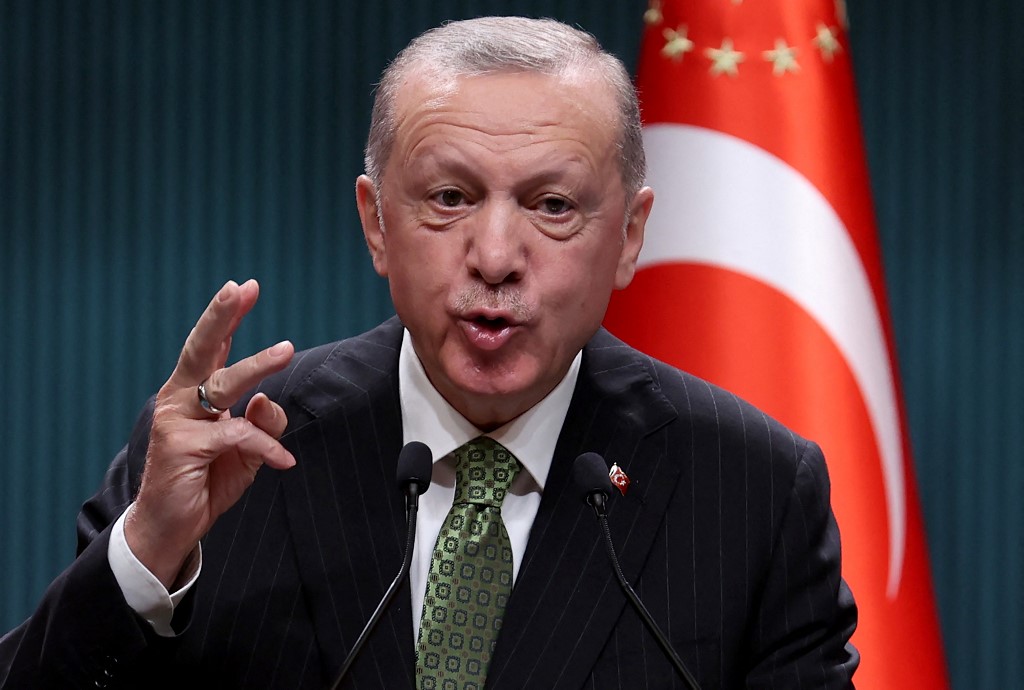Turkish President Recep Tayyip Erdoğan has referred to inflation in Turkey, which soared to an annual rate of 78.6 percent — the highest in 24 years – in June, as a “predicament” that is the “continuation of July 15” in a video message released on Friday on the sixth anniversary of an abortive putsch on July 15, 2016.
Underlining that inflation was not only Turkey’s problem but the whole world’s, the president said, “We’ll be one of the first countries to emerge from this turbulence.”
“Thus, we’ll leave behind another predicament that we see as the continuation of July 15 and continue with the construction of a great and powerful Turkey,” Erdoğan added in a video message released on the official social media accounts of the Presidency.
“We’ve also experienced some difficulties, the biggest impact of which we felt was the [high] cost of living,” Erdoğan noted, vowing that they wouldn’t consent to the “economic surrender” of Turkey, which “cannot be destroyed by a coup or brought into line by terrorism.”
Cumhurbaşkanı @RTErdogan’ın 15 Temmuz Demokrasi ve Millî Birlik Günü Video Mesajı pic.twitter.com/k6dQpuWWUF
— T.C. Cumhurbaşkanlığı (@tcbestepe) July 15, 2022
Inflation, which had stood at 73.5 percent in May and at 15.0 percent at the start of last year, rose to 78.6 percent, the highest rate since January 1998, in June, with unofficial estimates published by Turkish economists showing prices rising at more than double that figure.
Turkey’s crisis started when Erdoğan forced the central bank to go through with a series of interest rate cuts last year that he said were part of his “new economic model.”
The policy rate went down despite rising consumer prices.
Erdoğan rejects conventional economics and insists that high interest rates cause prices to rise, while economists believe his approach has exacerbated the pain felt worldwide from the jump in food and energy prices caused by Russia’s invasion of Ukraine.
The 2016 coup attempt claimed the lives of 251 people, injured a thousand others and was put down overnight.
Immediately after the abortive putsch, the Justice and Development Party (AKP) government along with Erdoğan pinned the blame on the faith-based Gülen movement.
The Gülen movement is a worldwide civic initiative rooted in the spiritual and humanistic tradition of Islam. The bases of the movement are diverse service projects that are initiated, funded and conducted by people who are motivated by the humanitarian discourse of Fethullah Gülen, a Turkish cleric resident in the US.
Both Gülen and his movement strongly deny any involvement in the abortive putsch.

